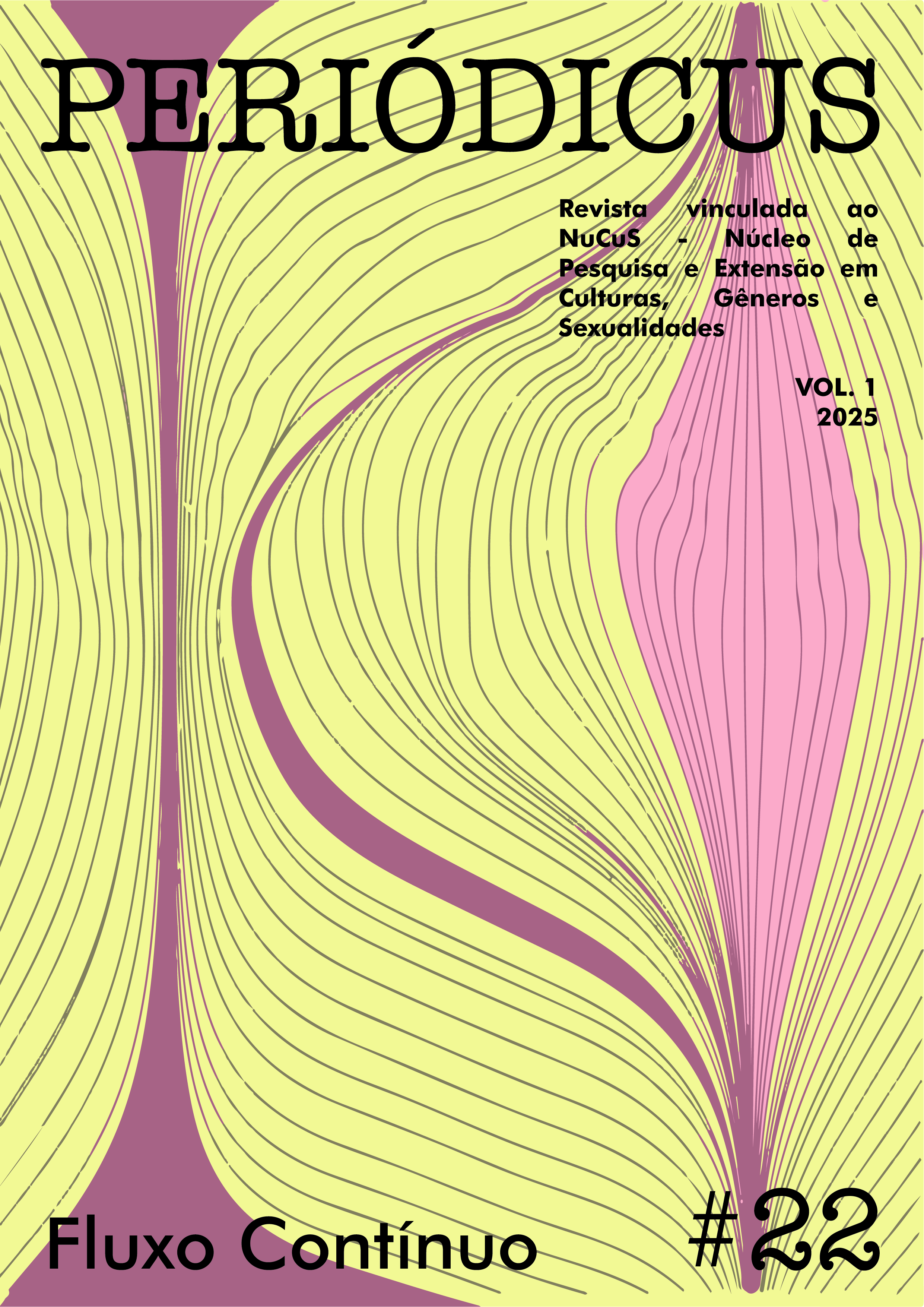“Identity” in perspective
the place of independent artistic creation for brazilian trans* people
DOI:
https://doi.org/10.9771/peri.v1i22.64638Abstract
This article contrasts two perspectives on trans* identity: one rooted in medical-scientific discourse and the other grounded in critical approaches. It begins with a brief literature review on the construction of the “transsexual” category in the West, shaped largely by medical-scientific knowledge. It then introduces a critical perspective influenced by Queer studies. The analysis draws on interviews with five Brazilian trans* artists, interpreting their experiences through this critical lens. The article emphasizes that independent artistic creation serves as a process of self-recognition, world interpretation, and the formation of bonds and affections that foster existence. These artistic practices embody care and resistance, challenging conventional understandings of trans identity.
Downloads
Downloads
Published
How to Cite
Issue
Section
License
Copyright (c) 2025 Iago Marichi Costa

This work is licensed under a Creative Commons Attribution-NonCommercial 4.0 International License.
Authors who publish in this journal agree to the following terms:
Authors retain copyright and grant the journal the right of first publication, with the work simultaneously licensed under a Creative Commons Attribution Noncommercial License that allows the work to be shared with acknowledgment of authorship and initial publication in this journal, but prohibits commercial use.
Authors are authorized to enter into separate additional contracts for non-exclusive distribution of the version of the work published in this journal (e.g., publishing in an institutional repository or as a book chapter), with acknowledgment of authorship and initial publication in this journal.
Authors are permitted and encouraged to publish and distribute their work online (e.g., in institutional repositories or on their personal website) at any point before or during the editorial process, as this can generate productive changes and increase the impact and citation of the published work (see The Effect of Open Access).








